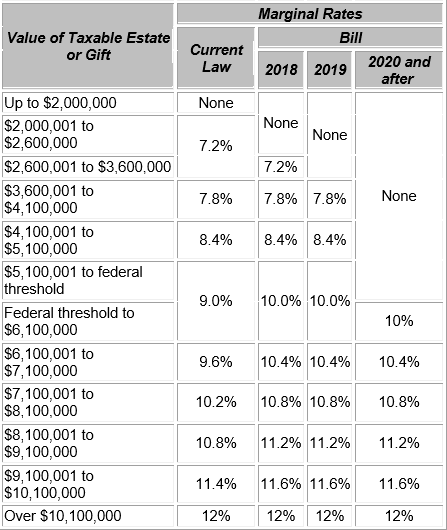A Qualified Longevity Annuity Contract (QLAC) provides an alternative investment option for retirement plans like 401(k)s, 403(b)s or IRAs. Most retirement plans require minimum distributions every year once you turn 70½. With QLACs, however, you don’t have to start taking distributions until you reach age 85. By not having to take yearly distributions, you have less income to report on your income tax return and your retirement funds will last longer.
A QLAC does not rely on the stock or bond market to determine its value. You use a portion of your retirement plan to buy the QLAC from a life insurance company. In exchange, the life insurance company invests the QLAC funds and makes regular income distributions to you over time. QLACs are sold by life insurance companies like Lincoln Financial, AIG, MassMutual, New York Life, and Guardian. The payments from the QLAC do not start immediately but some time in the future. Until you start taking payments from the QLAC, the principal continues to grow without having to pay tax on the growth.
Знайти швидке фінансове рішення, не виходячи з дому, стало реальністю для тисяч українців. Раніше, щоб отримати кошти, доводилося йти до банку, чекати на чергу, відповідати на питання, проходити співбесіду з менеджером. Тепер же для того, щоб оформити швидкий кредит онлайн, достатньо кількох кліків. Платформа працює цілодобово, тому звернутися можна навіть пізно ввечері або у вихідний день. Усе, що потрібно — це інтернет, банківська картка та базові документи. Немає зайвих бар'єрів: система самостійно аналізує дані, приймає рішення й повідомляє про нього практично миттєво. Такий підхід дозволяє уникнути черг, зекономити час і сконцентруватися на головному — вирішенні нагального питання. Цей формат зручний, зрозумілий і, що найважливіше, дієвий.
QLACs can’t be sold. Because they can’t be sold they may not be considered countable assets for Title 19 (Medicaid) purposes. The state must be named as a remainder beneficiary upon your death to the extent of medical assistance paid. Connecticut counts IRAs and other defined contribution retirement plans as available assets for Title 19. Thus, QLACs have an added advantage in Connecticut because they are not countable assets for Medicaid.
You and your spouse can buy a joint and survivor QLAC to increase the payout to the survivor of you. You can also make contributions to a QLAC after reaching 70½ unlike other retirement plans. QLACs have to start paying out by the time you turn 85 but you can start receiving distributions when you turn 70½. The income you receive is treated as ordinary income just like other retirement plans. Income payments must be for life.
QLACs do have their limits. QLACs do not have a cash surrender value and contain no withdrawal rights. Benefits cannot be commuted due to terminal illness. You can only invest up to $130,000 or 25% of your total retirement plan balance in a QLAC. It applies to all IRAs and retirement plans owned by the participant. The participant must calculate the value of all of his or her retirement plans as of December 31 of the year before the QLAC premium is paid to determine the 25% limit. If you exceed the QLAC limit, you can correct it by December 31 of the following year. Decline in market value of the qualified plan on the date of correction doesn’t matter. This calculation only has to be made once – when the premium is paid from your retirement.
If a participant dies, the life insurance company returns the premium invested less any distributions to your beneficiaries. No interest is credited. The life insurance company will return the premium by December 31 of the year following your death. The death benefit from a QLAC can either be lump sum or a life annuity equal to the payments that the deceased participant would have received. If the beneficiary is not the spouse, however, only a percentage of the payments due the deceased participant can be taken by the beneficiary as a life annuity. The IRS publishes a table to determine the percentage. For instance, if the non-spouse beneficiary is 25 or more years younger than the participant, the beneficiary only receives 20% of the amount the participant would have received.
Оперативное получение финансовой помощи становится ключевым фактором в решении множества ситуаций, требующих незамедлительного реагирования. Один из наиболее удобных вариантов — это простой кредит на карту, который оформляется онлайн и не требует сложных процедур или длительных ожиданий. Чтобы получить средства, достаточно заполнить короткую форму на сайте, указав паспортные данные и номер банковской карты. Заявка автоматически обрабатывается системой, и деньги зачисляются на счёт в течение нескольких минут после одобрения. Такой формат подходит для покрытия срочных расходов, оплаты счетов или решения непредвиденных задач.
QLACs encourage lifelong income payouts from qualified retirement plans and IRAs. QLACs reduce the amount of money that is subject to required minimum distributions so they are a good way to manage the risk of outliving your funds. In 2014, the US Treasury Department authorized the sale of QLACs. Thus, QLACs are a new investment option.
If you are considering a QLAC and want an opinion from a professional other than your insurance sales agent, give the estate planning attorneys at Cipparone & Zaccaro a call. Not all QLACs have the same provisions. We would be happy to look it over.

